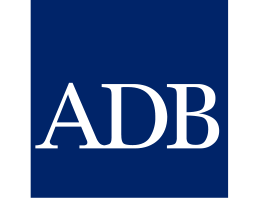Post COVID-19
Platform for Sustainable
Health Management
Solutions
Health Management
Solutions
Legal/Governance System
Effective Control: Speed, Expertise, Transparency
The countries that were praised as containing the virus effectively at an initial stage, such as the Republic of Korea, Singapore, and Taipei, China responded swiftly to the virus based on science and transparency. Taipei, China and Republic of Korea had experienced a failure in controlling SARS in 2005, which eventually became a momentum for them to reform the relevant bodies and legal framework. All three countries had strong command system which is centralized but also works in tandem with local bodies to strengthen regional response capabilities and maximize effectiveness. Rapid and transparent responses in combination with efficient ICT components played a significant role in management of the situation. Moreover, countries like Taipei, China utilized an established national system such as National Health Insurance system as a central database. This flexibility in establishment and implementation of organization and institution helped the government to respond to the crisis more effectively.
Relevant information is disclosed through various channels people can access, for example: daily briefing by the authorities that is aired on television, via chatbots in different languages, or official websites. Disclosure of information provided by experts gained public confidence, and this led to more active cooperation of citizens. This was also crucial in that if uncertainty of the novel virus had not been addressed, it could aggravate the situation, arousing fear among public and promoting the circulation of fake news. Hence, the successful governments mainly focused on rapid and efficient responses based on expertise, guaranteeing transparent communication to the public.
Relevant information is disclosed through various channels people can access, for example: daily briefing by the authorities that is aired on television, via chatbots in different languages, or official websites. Disclosure of information provided by experts gained public confidence, and this led to more active cooperation of citizens. This was also crucial in that if uncertainty of the novel virus had not been addressed, it could aggravate the situation, arousing fear among public and promoting the circulation of fake news. Hence, the successful governments mainly focused on rapid and efficient responses based on expertise, guaranteeing transparent communication to the public.
Capacity Building through Multilevel and Cross-sectoral Cooperation
The World Health Organization (WHO) declared that COVID-19 can be characterized as a pandemic on March 11 of 2020. Responses from the international community have not been satisfactory, as governments have mostly struggled to prevent the spread of the virus within and between borders. Despite the spread of the virus, which was accelerated due to the hyperconnectivity of global society and value chains, multilateral and international efforts to fight against COVID-19 have been relatively weak especially in the early stage of the virus spread.
As of a result of the lack of multilateral effort, intranational cooperation has come to the fore. As aforementioned, the governments that succeeded in initial management of the crisis had a centralized command system that is cross-ministry and expertise-based, cooperating with local relevant bodies to respond rapidly, flexibly, and efficiently. A close cooperation between these two levels of governance is especially significant in that the absolute majority of people now live in cities where regional control and management is critical. In slums, especially, the situation can be worse due to the high population densities with lack of resources and infrastructure, as well as existing health risks and poverty.
Partnerships between public and private sector are significant as well. In the Republic of Korea, the private sector played a crucial role in the ‘3T (Testing, Tracing, Treatment)’ by developing methods to track infection cases and testing kits, as well as continued R&D work. Public – Private Partnership should be kept underscored, as transforming society under the pandemic require more creative, pioneering, and aggressive research and development that are relatively hard to be achieved by the public sector. Long-term cooperation is even more significant in that innovation of technology and transformation of relevant sectors eventually affect future jobs and economic growth. Partnerships between the public and private sector, therefore, should be further promoted to assure decent work and sustainable growth, while fostering the youth with quality education.
As of a result of the lack of multilateral effort, intranational cooperation has come to the fore. As aforementioned, the governments that succeeded in initial management of the crisis had a centralized command system that is cross-ministry and expertise-based, cooperating with local relevant bodies to respond rapidly, flexibly, and efficiently. A close cooperation between these two levels of governance is especially significant in that the absolute majority of people now live in cities where regional control and management is critical. In slums, especially, the situation can be worse due to the high population densities with lack of resources and infrastructure, as well as existing health risks and poverty.
Partnerships between public and private sector are significant as well. In the Republic of Korea, the private sector played a crucial role in the ‘3T (Testing, Tracing, Treatment)’ by developing methods to track infection cases and testing kits, as well as continued R&D work. Public – Private Partnership should be kept underscored, as transforming society under the pandemic require more creative, pioneering, and aggressive research and development that are relatively hard to be achieved by the public sector. Long-term cooperation is even more significant in that innovation of technology and transformation of relevant sectors eventually affect future jobs and economic growth. Partnerships between the public and private sector, therefore, should be further promoted to assure decent work and sustainable growth, while fostering the youth with quality education.
Building Social Trust and Sustainable, Resilient Society: ‘Leave no one behind’
It has been widely pointed out that impacts of the pandemic are never equal – they are disproportionate depending on social factors such as race, ethnicity, gender, or economic status. Black, Latino, and Native Americans, for example, showed much higher proportion of confirmed cases than other racial and ethnic groups in the United States, as they were more vulnerable in overall social, political, and economic context of American society (Thakur et al., 2020). Domestic violence against women during lockdowns or strong social distancing increased and women are also at more vulnerable to sexual or reproductive health risks (UN Women, n.d.). Outright hatred toward Asia-Pacific people in some European countries and the US worsened since their skin color ‘marked’ them as people who are from the place where the virus started.
‘Leaving no one behind’ is not just about philanthropic efforts but is critical from a pragmatic point of view. When the minority or vulnerable groups become invisible to the authorities and ‘normal’ citizens, it is harder to discern possible dangers. If impact assessments consider social, economic and political perspectives, in an integrated way, the overall response can be strengthened (UNDP, 2020). This approach would ultimately ensure the sustainability and resilience of the society based on inclusiveness and capacity.
Civil society may cooperative with the authorities, while also providing ‘checks and balances’. In the case of Republic of Korea, active cooperation of citizens is regarded as one of the reasons for the initial success in preventing spread of the virus. Over time, however, some issues arose. With specific groups being pronounced as ‘super-spreaders’ and blamed harshly, a recognition that ‘stigmatization’ does not have any advantage for better prevention and it is merely a manifestation of hatred which is already entrenched in society. Invasion of privacy was also condemned as the authorities disclosed information on infectees’ age, gender, and residence. Not only experts and scholars but also activists and normal citizens shared the recognition which fostered a discussion on to which extent the government should be authorized to violate individual privacy. Though the legal issue has yet to be addressed and limitations of the current law remains (Lim, 2020), the aforementioned discussions imply that socio-political factors always should be considered in managing a crisis and civil society can function as the seedbed.
‘Leaving no one behind’ is not just about philanthropic efforts but is critical from a pragmatic point of view. When the minority or vulnerable groups become invisible to the authorities and ‘normal’ citizens, it is harder to discern possible dangers. If impact assessments consider social, economic and political perspectives, in an integrated way, the overall response can be strengthened (UNDP, 2020). This approach would ultimately ensure the sustainability and resilience of the society based on inclusiveness and capacity.
Civil society may cooperative with the authorities, while also providing ‘checks and balances’. In the case of Republic of Korea, active cooperation of citizens is regarded as one of the reasons for the initial success in preventing spread of the virus. Over time, however, some issues arose. With specific groups being pronounced as ‘super-spreaders’ and blamed harshly, a recognition that ‘stigmatization’ does not have any advantage for better prevention and it is merely a manifestation of hatred which is already entrenched in society. Invasion of privacy was also condemned as the authorities disclosed information on infectees’ age, gender, and residence. Not only experts and scholars but also activists and normal citizens shared the recognition which fostered a discussion on to which extent the government should be authorized to violate individual privacy. Though the legal issue has yet to be addressed and limitations of the current law remains (Lim, 2020), the aforementioned discussions imply that socio-political factors always should be considered in managing a crisis and civil society can function as the seedbed.
Lessons Learned – and What We Should Learn
Various efforts have been carried out to pursue more sustainable ways of life that would eventually assure the sustainability of the entire human race and other species. The Sustainable Development Goals (SDGs) is one of the endeavors to which the international community has committed to achieve this aim. These goals were set in 2015 and are aimed to be met by 2030, though the prospect of achieving them has become less promising due to the pandemic.
However, COVID-19 may not be the last pandemic. The source of the virus has not been officially identified, yet scholars have warned that aggravating ecological destruction and climate change can increase emergence, transmission, or severity of infectious diseases though it may vary across different variants (Shope, 1991; Keesing et al., 2010). Destruction of wildlife habitat and over-development that exacerbate the decline of biodiversity, increased global temperature and rapidly changing environment can contribute to higher possibility of future pandemics. Growing temperature is melting permafrost that contains ancient viruses and greenhouse gases, which cause a vicious cycle of global warming.
It has now been more than a year since the WHO declared COVID-19 a pandemic, and we are still suffering - uncertainty and risks remaining regarding vaccines, people feeling tired of social distancing and other strong measures, and real economy not being revitalized. As this pandemic may be just one of the crises that we will experience in this century (Brousselle et al., 2020), legal framework and governance should further ensure the sustainability in their implementation. Addressing the root causes of this crisis and incorporating inclusive approaches with long-term perspective are required. Thus, we must reframe our legal system and governance in more sustainable and resilient ways, with strengthened capacity.
However, COVID-19 may not be the last pandemic. The source of the virus has not been officially identified, yet scholars have warned that aggravating ecological destruction and climate change can increase emergence, transmission, or severity of infectious diseases though it may vary across different variants (Shope, 1991; Keesing et al., 2010). Destruction of wildlife habitat and over-development that exacerbate the decline of biodiversity, increased global temperature and rapidly changing environment can contribute to higher possibility of future pandemics. Growing temperature is melting permafrost that contains ancient viruses and greenhouse gases, which cause a vicious cycle of global warming.
It has now been more than a year since the WHO declared COVID-19 a pandemic, and we are still suffering - uncertainty and risks remaining regarding vaccines, people feeling tired of social distancing and other strong measures, and real economy not being revitalized. As this pandemic may be just one of the crises that we will experience in this century (Brousselle et al., 2020), legal framework and governance should further ensure the sustainability in their implementation. Addressing the root causes of this crisis and incorporating inclusive approaches with long-term perspective are required. Thus, we must reframe our legal system and governance in more sustainable and resilient ways, with strengthened capacity.
References
Brousselle, A., Brunet‐Jailly, E., Kennedy, C., Phillips, S. D., Quigley, K., & Roberts, A. (2020). Beyond COVID‐19: Five commentaries on reimagining governance for future crises and resilience. Canadian Public Administration, 63(3), 369-408.
COVID-19: UNDP’s Integrated Response. UNDP. Available at:
https://www.undp.org/content/dam/undp/library/km-qap/undp-COVID-19_UNDP_Integrated_Response.pdf (Retrieved: April 16th, 2021)
https://www.undp.org/content/dam/undp/library/km-qap/undp-COVID-19_UNDP_Integrated_Response.pdf (Retrieved: April 16th, 2021)
In Focus: Gender equality matters in COVID-19 response. UN Women. Available at:
https://www.unwomen.org/en/news/in-focus/in-focus-gender-equality-in-covid-19-response?gclid=EAIaIQobChMIoKGE9emB8AIVjFVgCh0tswghEAAYASAAEgIT9PD_BwE (Retrieved: April 16th, 2021)
https://www.unwomen.org/en/news/in-focus/in-focus-gender-equality-in-covid-19-response?gclid=EAIaIQobChMIoKGE9emB8AIVjFVgCh0tswghEAAYASAAEgIT9PD_BwE (Retrieved: April 16th, 2021)
Lim, G. (2020). Critical Discussions on the Use of Personal Information in Implementing Corona Virus Overcoming Measures. Journal of Law, 31(4), 71-112.
Keesing, F., Belden, L. K., Daszak, P., Dobson, A., Harvell, C. D., Holt, R. D., ... & Ostfeld, R. S. (2010). Impacts of biodiversity on the emergence and transmission of infectious diseases. Nature, 468(7324), 647-652.
Thakur, N., Lovinsky-Desir, S., Bime, C., Wisnivesky, J. P., & Celedón, J. C. (2020). The Structural and Social Determinants of the Racial/Ethnic Disparities in the US COVID-19 Pandemic. What’s Our Role?. American journal of respiratory and critical care medicine, 202(7), 943-949.
Shope, R. (1991). Global climate change and infectious diseases. Environmental Health Perspectives, 96, 171-174.



